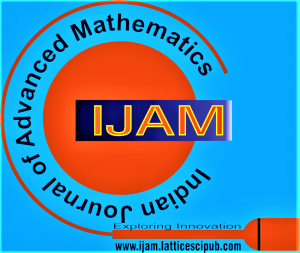Archiving:
Digital archiving has become an essential function in the journal publishing lifecycle. It guarantees that your scholarly content, including journal articles, will be securely stored and readily available to readers for years. Rest assured that your research work will be preserved and easily publicly accessible through archiving—for example, Internet Archiving, LOCKSS and CLOCKSS. The Indian Journal of Advanced Mathematics (IJAM) uses platforms like Internet Archiving, LOCKSS, CLOCKSS, and the Zenodo repository.
The Indian Journal of Advanced Mathematics (IJAM) recommends authors to self-archive and publish their articles on their institutional repositories or websites without delay. These practices can increase the chances of their work being cited and promote productive exchanges between authors.
References:
